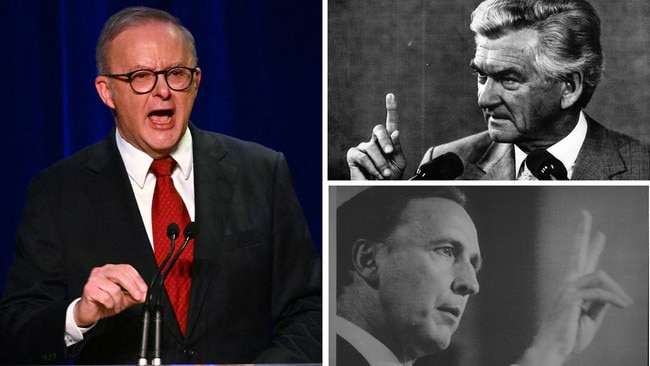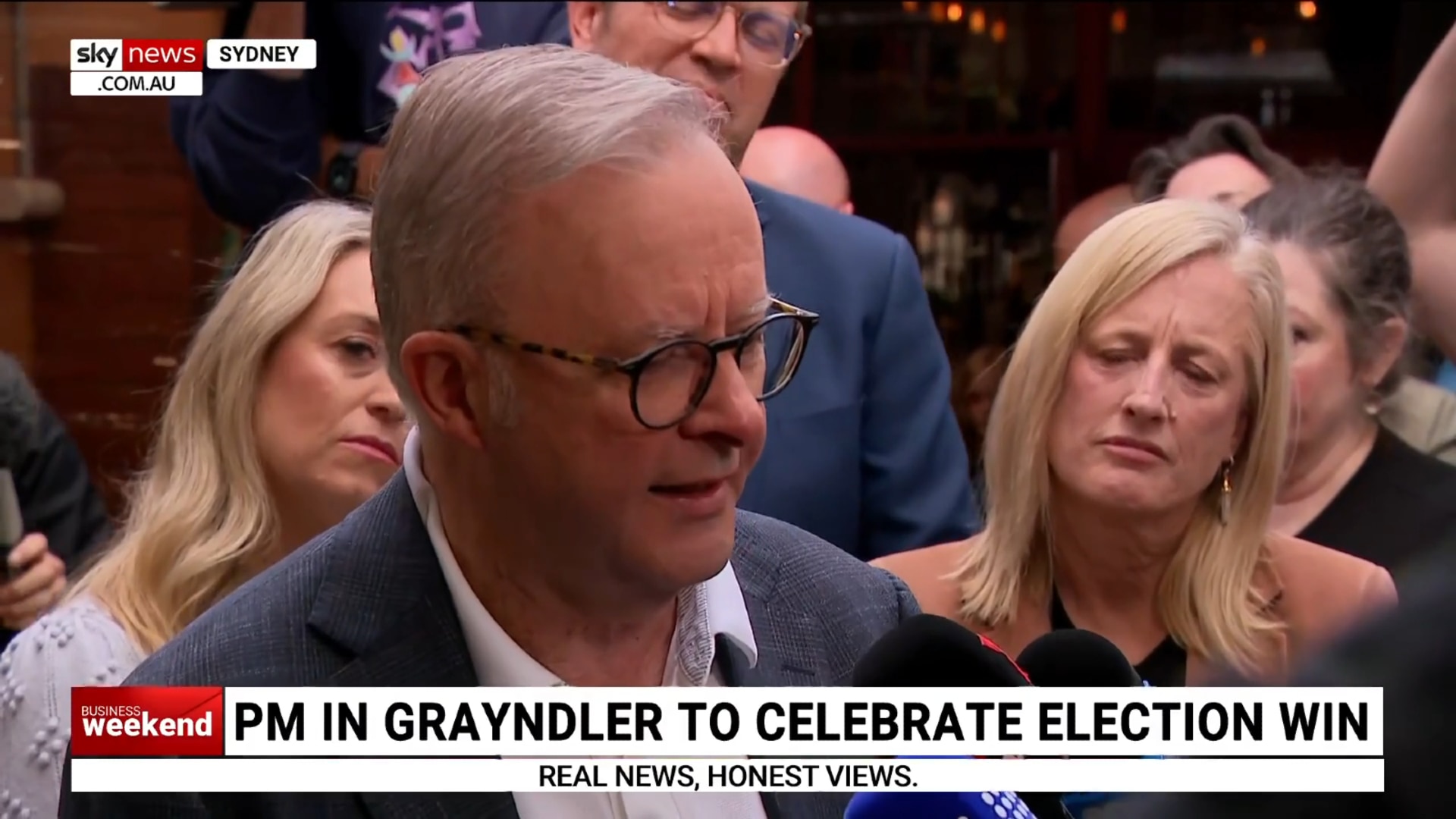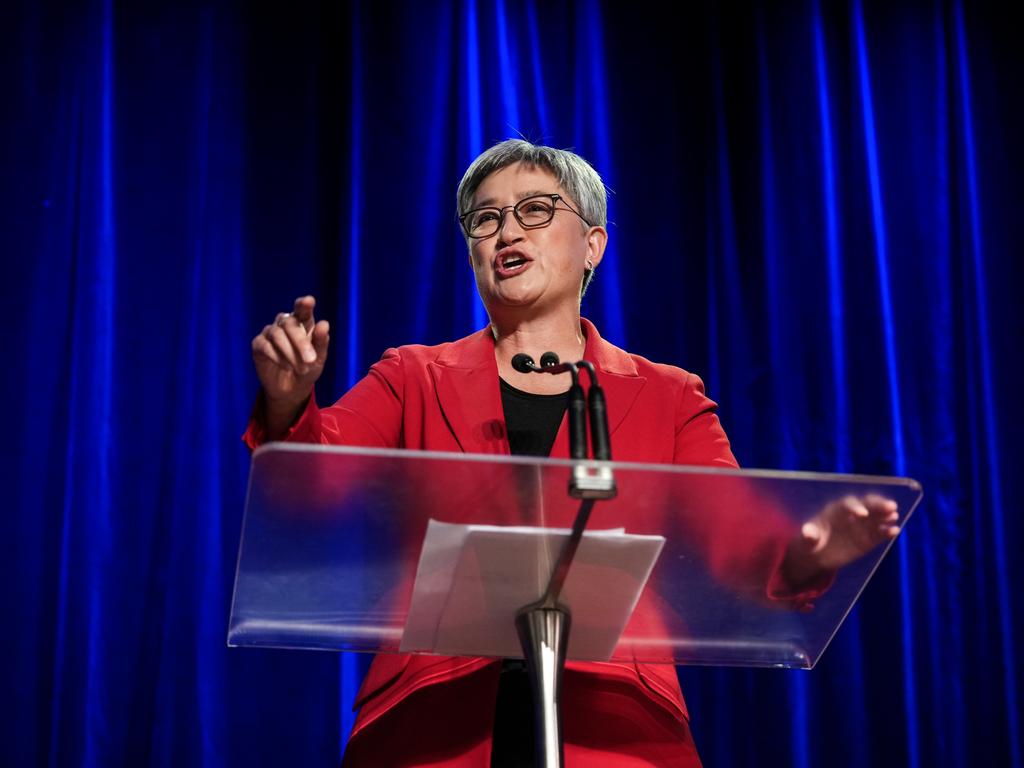
Anthony Albanese is in the best, most powerful position of all modern-day Labor leaders and, arguably, in the strongest position of any Australian ALP prime minister since Federation.
Albanese’s acute sense for raw politics has turned a narrow, precarious and potentially unstable two-seat victory in 2022 into an unassailable “two-term” standing of 85 seats in an Albavanche in 2025.
Saturday night’s result was beyond prediction, unseen and more than the best Labor expected.
Albanese’s own fist-pumping, emotional and teary victory speech betrayed his own surprise, relief and vindication at such an early clear victory which included the loss of Peter Dutton’s seat of Dickson.
In his speech Albanese declared: “Australians have chosen to face global challenges the Australian way: looking after each other while building for the future. And to serve these values, meet these challenges, these opportunities, and build that better and stronger future, Australians have chosen a majority Labor government.”
A majority government is the key and the size of that majority ensures Albanese can exercise an authority he did not have before over personnel, politics and policy to take him beyond being someone who won because the opposite number was disliked.
Albanese has always maintained he would win a majority and campaigned to demonise and unseat the Opposition Leader after successfully using the unpopularity of Scott Morrison to scrape to a win in 2022.
But the scale of win – which includes inflicting the worst result on the Coalition in history – transcends the cunning tactics of winning and puts Albanese into an unparalleled position as Labor leader at a time of dire global circumstances not far removed from those that faced the great Labor leaders of John Curtin and Ben Chifley during World War II.
The authority Albanese now has means all thought of him having to “choose to retire” in the event of a minority government or even a return with a slim majority is gone – Albanese had vowed to serve a full term if he won and that is now unchallenged.
Given the expected majority, Albanese has almost guaranteed himself three terms and already a place in the Labor pantheon.
The subtle positioning of potential leadership contenders can end – Albanese is just 60, been re-elected in an avalanche, has been personally vindicated, has a burning conviction to deliver on his social visions and will have a whole new legion of MPs who owe their political lives and allegiances to him.

While Labor prime ministers have factional constraints on the selection of their front bench, a leader in Albanese’s position, like others before him, can wield a will in that process and retains the right to apportion the ministerial posts.
If Albanese wants to bring in new talent or promote younger ministers he can. Former Kevin Rudd adviser and now entrenched MP for Parramatta Andrew Charlton is one backbencher who is likely to be promoted, as is existing minister Clare O’Neil.
Older, longer serving ministers or those who have risked Albanese’s ire — such as former leadership foe Tanya Plibersek — can be further demoted if the PM wishes.
During the campaign, and on election night, Albanese acknowledged the contributions of his team and the rich and volunteer-ready “mighty” unions but, as Bob Hawke found, an entrenched popular leader without threat in the parliamentary party can assert his own will.
While Albanese exalted stability in his first term and refused to get rid of ministers who deserved to go — costing him and the government support — he is now in a position for a fresh start from a position of strength.
Ironically, the desolation of the Coalition means Albanese has another arrow in his quiver of authority and policy implementation. The new Senate is likely to be less complicated than the last and Labor may be in a position to get legislation through with just the support of the Greens or the Coalition.
If Albanese can put up reasonable legislation – say on the necessary expansion of gas production and in the market – then the Coalition would be honour-bound to stop Greens shenanigans and support Labor. John Howard built Coalition credibility from opposition by agreeing to many of the reforms of the Hawke-Keating years, and whoever is the new Liberal leader would be well advised to do the same, no matter how much it helps Albanese.
This is where the real test is for Albanese’s exercise of his new-found power: will he be prepared to divert from a status quo on Labor policy – particularly in areas where the policy-free Labor election campaign clearly needs to change for the good of the nation.
Albanese has a mandate to govern but that must include adjusting for changing circumstances – as he has noted himself when altering previous positions.
For instance, during the campaign Albanese told The Australian that, of course, he would be prepared to lift defence spending if it was necessary, and if he could ensure the money was spent on the right assets.
Given the Coalition had a policy of higher spending the new, more powerful Labor government could only expect enthusiastic support from the dwindled Coalition.
But the real test will be on energy. Albanese’s last week in Western Australia contained a real commitment to gas as part of the energy mix – where the rest of the world, including Labour in Britain, is reassessing and repositioning.
These are just a couple of examples of where Albanese needs to demonstrate he can use his almost unparalleled position to shift direction in the national interest, which may upset some ministers committed to ideological outcomes that no longer fit.
On an historical note, to give some idea of the sweeping nature of Albanese’s victory, he overtook the length of service of Gough Whitlam in the last days of the campaign; will overtake Julia Gillard in three weeks; and if he serves the next three years will overtake Curtin, Paul Keating, Chifley and Andrew Fisher, leaving only Bob Hawke with eight years and 267 days.
When this was raised in the interview with The Australian, Albanese’s only reaction two weeks from polling day was “wow”. Wow indeed. Now he needs to take a lead from Hawke and Keating in shaping Labor policy and implementation to the nation’s needs.







